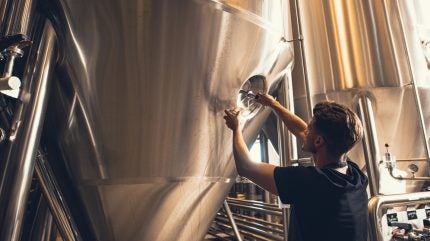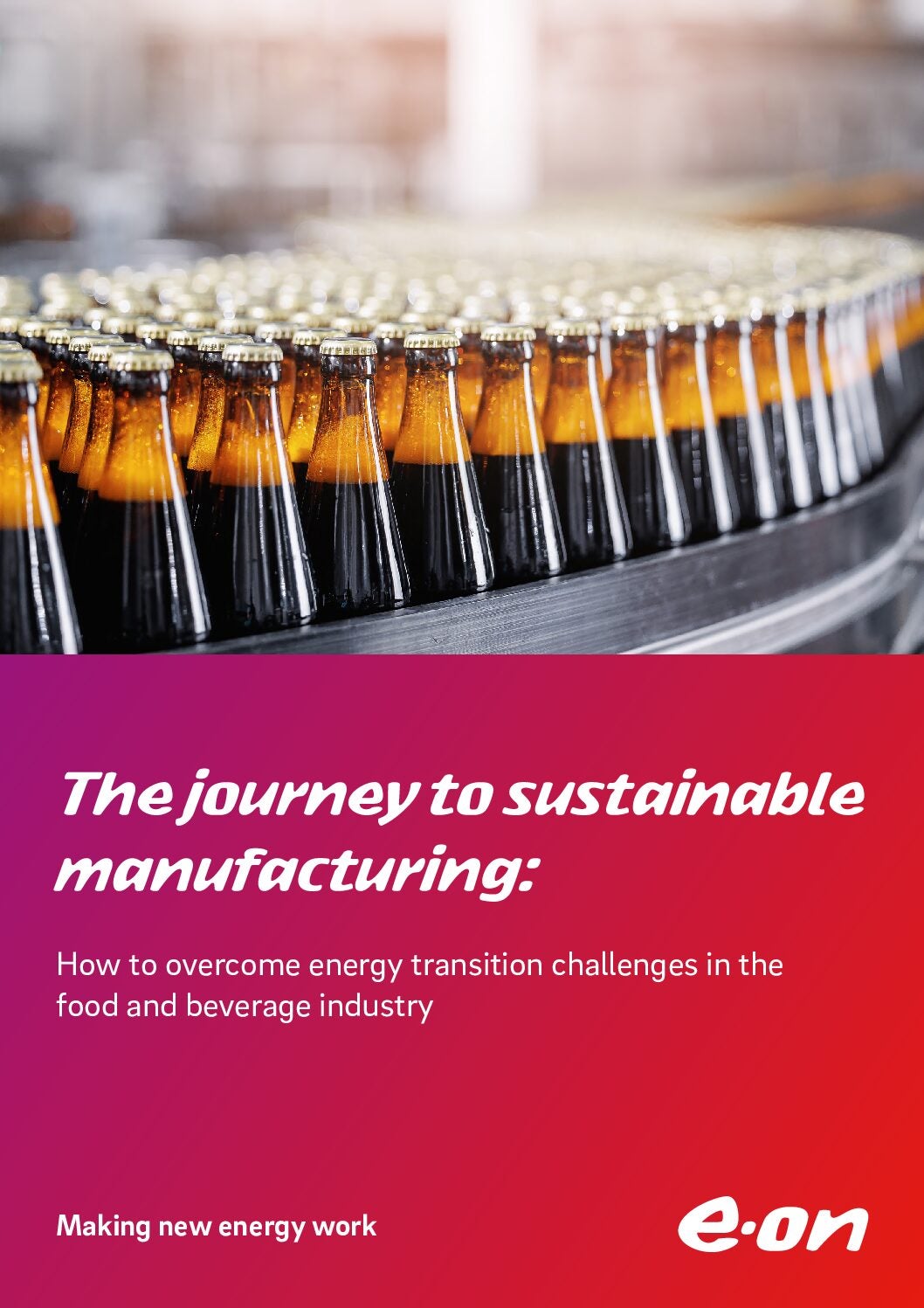
Recent advancements in technology, particularly the implementation of heat pumps and heat exchangers, are significantly transforming the food and beverage manufacturing by enhancing efficiency and promoting sustainability through the reuse of waste heat and hot water. Heat pumps can transform captured waste heat generated during manufacturing processes, such as washing, brewing or cooking, and repurpose it for further applications within the facility or externally.
Applicable to breweries, dairies and meat processing facilities, among others, waste heat recovery can lower direct Scope 1 CO2 emissions, promoting sustainability objectives and creating a more effective and circular production process. This is seen as being particularly important in Europe, where European brands need to prepare for the carbon offsetting ban in 2026, when manufacturers will no longer be able to call measures such as carbon offsetting as ‘green’. This move is designed to protect consumers from misleading practices and help them make better purchasing choices[i]. Additionally, the European Environment Agency is focusing on waste heat recovery to help decarbonise food processing and contribute to the EU’s net zero emissions target for 2050[ii].
However, when it comes to waste heat recovery, there is no such thing as a ‘plug-and-play’ solution. Successful waste heat recovery demands deep technical expertise and a holistic approach, making it impossible to simply install a standard, one-size-fits-all solution.
Saving energy while brewing beer
Energy costs are rising and stricter environmental regulations on both energy production and wastewater management are prompting energy and water-intensive manufacturing, like breweries, to seek comprehensive methods to reduce costs and enhance efficiency.
Christoph Hiesgen, E.ON’s Senior Manager for Growth and Sales, with 28 years of experience in the energy sector, is responsible for business development across Europe. Heating, then cooling, is very energy intensive, he says, but the two processes can work together via innovative technologies to conserve that energy.
“In breweries and dairies, you have both a hot side and a cold side,” he explains. “During the brewing process itself, you have a lot of steam and hot water. On the cold side, you need to cool down and store the beer or milk products.”
Breweries are also very water intensive, and brewers are keen to explore ways to reuse heat before generating new energy. This includes hot water use for cleaning purposes and using heat exchangers and heat pumps with wastewater. “We look into where the heat is coming from and see if we can bring it back into the business via waste heat recovery, transforming it back to a higher temperature with heat pumps,” says Hiesgen. “From the cooling side, we are looking into how to use the waste heat produced by the cooling process – inherent in the physics – and also use this heat.”
Hiesgen says that benefits for breweries can include significant CO2 reduction (up to 75% in one case study) as each kilowatt-hour of natural gas saved (by re-using heat) prevents ~200 grams of CO2 being emitted, supporting manufacturer’s sustainability goals. Hiesgen characterises waste heat recovery as a smart, viable alternative, with a payback period of just three to four years in recent case studies. Added to that, waste heat recovery systems are applicable to a wide range of potential food and drink sector manufacturers, including meat processing plants and abattoirs, as well as dairies and breweries.
Practical implementation
However, installing or retrofitting such systems do come with challenges. Installation involves multiple stakeholders, requires technical expertise and often needs financial mediation and subsidy support, as it focuses on long-term efficiency over short-term solutions. According to Hiesgen, E.ON uses a technological approach to address these issues, including detailed, site-specific engineering which involves a comprehensive analysis of existing on-site processes. E.ON produces custom solutions for each facility.
“Some projects also completely replace natural gas with biomass solutions,” notes Hiesgen. “For example, for one facility in Germany, we are installing a wood gasification process to run combined heat and power (CHP) for the brewery. This has two different positive effects. First, we can really save 100% of the fossil fuel, over natural gas; but secondly, we can produce on-site carbon-free power for the client, lowering his consumption. We are also producing biochar, which is something we can then trade, with carbon certificates.”
König brewery
The idea of utilising waste heat has been taken a step further at the König brewery in the Rhine and Ruhr area in Duisburg, Germany. Here, industrial waste heat from the neighbouring Thyssenkrupp Steel’s steel production facility is now flowing through a steam transfer pipeline built and operated by E.ON into the König brewery, where it supplies thermal energy for the brewery’s processes.
This joint project reduces the brewery’s annual CO2 emissions by up to 75%, depending on capacity utilisation. All beer production processes, that require energy in the form of heat, are now emission-free, as confirmed by an independent report from the University of Duisburg, Essen. Steam from the waste heat-generating steel and gas-fired power plants is fed into the associated pipeline network and flows through the custom constructed pipeline to the König brewery. A new steam heat exchanger uses the energy supplied to generate fresh steam for the brewing processes, which is fed into the brewery’s existing steam network. As an energy partner, E.ON built the entire pipeline infrastructure and the steam heat exchanger and are also responsible for energy management in the future.
Not a plug-and-play solution
Hiesgen is keen to emphasize that E.ON’s solutions include a set of unique skills to get the best benefit from the technologies that are available: “It’s very important to allow companies like E.ON to look into the details and even go behind the fence of the customers and make really good surveys – not simply offering or replacing, one by one, an existing asset. This holistic approach is something customers need to understand, and that it is worth the effort [because] the results are really exciting.”
E.ON can even provide financial and practical help with grants and financing. E.ON’s extensive experience can help with applying for subsidies on behalf of a project, preparing the application and detailing the technical processes. For instance, the German government subsidised 30% of the initial capital expenditure for the König brewery project.
Hiesgen predicts that future trends in waste heat recovery will include a gradual transition towards more sustainable, efficient and technologically sophisticated industrial energy solutions. Along with the increasing use of heat pump technologies, future solutions will involve integrating multiple technologies, such as E-boilers, heat pumps, storage systems and renewable energy integration. Market pressures, such as an increasing interest in sustainability and the potential for manufacturers to become active energy market participants, will also play a part, he says.
Download the free white paper below to learn more about E.ON’s cutting-edge solutions for the food and beverage sector.
[i] https://www.europarl.europa.eu/news/en/press-room/20230918IPR05412/eu-to-ban-greenwashing-and-improve-consumer-information-on-product-durability
[ii] https://climate.ec.europa.eu/eu-action/climate-strategies-targets/2050-long-term-strategy_en



